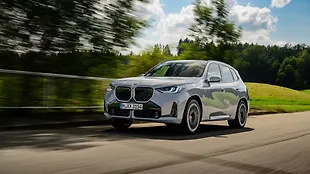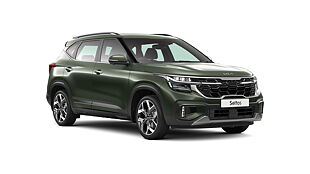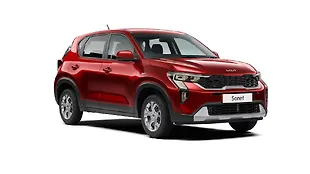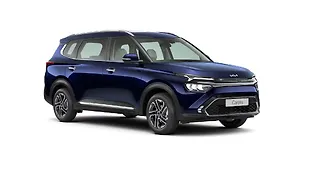Introduction
There are various mid-size and compact SUVs in the market today and we have covered almost all of them in detail. This time around, we bring you a different take on the Volkswagen Taigun and the Kia Sonet. They are different, are positioned at different price points, and though both are automatics, there’s a slight difference in the gearbox tech. However, they have one strong common link — 1.0-litre turbo petrol engine. So, if one was to decide where to put their money based only on the powertrain, here's our take on its performance, fuel efficiency, and more. We're not doing a full-fledged comparison, but what we have here is an analogy based on their powertrains and how different they feel while driving.
Refinement

Before we get to performance and feel, let's speak of refinement. Both the vehicles get a 1.0-litre three-cylinder engine, but you can feel the difference with the way the VW revs in a relaxed way with almost nil vibrations. The Sonet, on the other hand, though refined is more vocal when revved hard. Slight vibrations can be felt at its steering wheel post 3,500rpm. And, you'd not want to keep pushing this one as you would with the Taigun. The VW just feels kinder and more considerate, whereas the Kia obeys orders while also reminding you that it is being given the stick to keep up the pace.

Performance
Speaking of speed, both these SUVs turned out to be quite competitive against each other. And it's not surprising as both produce similar power outputs. When it comes to flat-out acceleration, both are fairly quick and there’s little to split between the two for times. The Taigun's 0-100kmph sprint timing at 11.53 seconds is a tiny bit faster than the Sonet's 11.78 seconds. Here the Sonet is slightly slower due to the conservative DCT which doesn’t allow a quick getaway from a standstill. And then, the roll-on figures that are a good measure for drivability hint the same. However, thanks to the stronger mid-range and being lighter, the Sonet's 20-80kmph run in 7.39 seconds and 40-100kmph in 9.14 seconds are slightly faster than the Taigun's 8.25 seconds and 10.01 seconds, respectively. Given the meagre difference in figures, it doesn't feel much different here and both feel quite lively.

The Sonet Turbo's seven-speed dual-clutch automatic doesn't show any delay, while the Taigun's six-speed torque converter feels faster and smoother, if not as quick as a DSG. Furthermore, the Kia gets drive and traction modes with Sport making the throttle response sharp, but still not snappy. Comparatively, the DCT doesn’t feel as smooth naturally, especially when you are constantly going on and off the throttle in traffic. But it’s not bad at all. On the other hand, the VW’s torque converter is considerably smoother in such stop-and-go situations.

Fuel Efficiency

Now let’s get to another important parameter — fuel efficiency. We all want a car that is a little light on the pocket, and these compact SUVs ensure that. These 1.0-litre engines have different weights to pull. For the heavier 1,290kg Taigun, the tested city fuel efficiency stands at 10.98kmpl and the highway economy at 18.18kmpl. Still, the Sonet at 1,190kg delivers 12.1kmpl in the city and 18.49kmpl on the highway, proving to be slightly more fuel-efficient.

Price and Conclusion
At the time of testing, the on-road price of the Kia Sonet GTX Plus 1.0 DCT dual tone variant was Rs 15.62 lakh. Meanwhile, the Volkswagen Taigun Topline 1.0 TSI AT retailed at Rs 20.2 lakh. Now, that Rs 4.6 lakh difference has many other things pertaining to the entire package. The Sonet is a sub-four metre car so naturally, it’s down on size and price. We would totally get why you may choose the Sonet over the Taigun. It’s undeniably good value considering the kind of performance and fuel efficiency it offers for the price. It also comes down to individual preferences for the kind of automatic gearbox, or perhaps you just want to save a big chunk of money with your new compact SUV.

But let’s not forget it’s the Taigun that is the more refined SUV of the two. It’s ever so slightly more usable as a daily car, too, with its larger dimensions. Although ultimately, the pricing is likely to be the deciding factor for many. Not to mention, either way, you are getting a quick small SUV that is high on both, performance, and fuel efficiency.

Pictures by Kapil Angane and Kaustubh Gandhi

![Kia Sonet [2022-2023] Image Kia Sonet [2022-2023] Image](https://imgd.aeplcdn.com/272x153/n/cw/ec/115451/sonet-exterior-right-front-three-quarter.jpeg?isig=0&q=80)

























